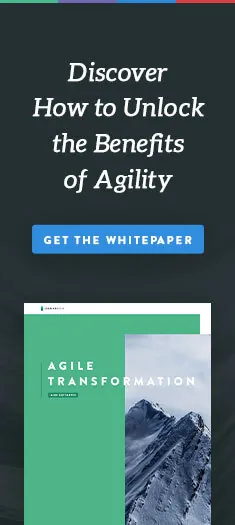Having Answers vs. Influence
The Great Junior Consulting Experiment
A few years ago, LeadingAgile embarked on an experiment to create a junior consulting role for young college graduates. We knew it was the right time as a company to grow and create space for new academic disciplines to add to our practice. There was just one problem.
Being that we’re consultants, the responsibility to the client is sacred. There’s so much to learn for someone new to the job, and it can be challenging for those on the account to create safe opportunities for them to learn while simultaneously doing the work.
So the first batch of junior consultants had their work cut out for them. There was a lot of pressure to perform in the opportunities we were given. What I learned going through this process is this – it’s hard to speak up.
I think this is something many eager young professionals struggle with entering the workforce – we have many insights, but knowing how to share them (and how to be listened to) can be a challenge.
As I was soon to find out, being heard did not always mean being listened to.
The Urge to Tell
With bold ambitions, I graduated college and set out in my career to change the world. But showing up at the client site on day one was a different story. I was terrified. I knew nothing and wanted to guard that secret with my dying breath.
To fill the empty void of imposter syndrome sitting in my gut, I opened my mouth and started talking. I wanted people to know I had good ideas and correct answers.
On a few occasions, I went to absurd lengths to prove it. I would challenge my team members on the smallest issues, creating lots of casualties along the way, just to get the satisfaction of feeling listened to.
It didn’t take long before these hiccups manifested in gaping holes in my relationships. I felt like nobody understood me, and there was a great divide between us.
I thought, “if only I got better at telling people the answers, they would all see I had them.” But I was missing a very important distinction between truth and my version of the truth.
It’s Not About Being Right
It was right at this time that one of my mentors watching me through this experience told me something I needed to hear:
“I do think you have a perspective that is valuable and needed, but you have to realize that our clients are dealing with complex situations. There’s politics; there’s feelings around the politics. There’s a minefield you can’t even see.
The whole truth is much bigger than you, even though you have an important part to play in it. To weave yourself into the larger truth, you have to connect with others and hear from them what they have to say.”
And it made me think: “maybe it wasn’t about answers at all?”
Maybe the truth was something bigger than me. And maybe, in the uncomfortable pause awaiting truth, when my urge to jump in with answers showed itself, I could look deeper into others to find it.
Influence Starts With People
If you are like me, frustrated that your answers aren’t reaching people, then maybe there’s more work to do besides having the correct answer. Perhaps part of our solution is about the people and the work we have to do preparing people to listen.
This takes time, and the more I grew to respect that, the more I could get past this urge and find ways to really relate to people. When I started focusing on the people, the edges softened, the space opened up, and we could actually share more with one another.
This is not so different from how we engage with organizations. When we walk in the door, there is more history and sub-text baked into the language than we could ever imagine. The types of problems customers bring us are complex, and we can’t just pretend we have the answers. To really influence, we need to spend time getting to know the people, their unique problems, and how they talk about their problems.
If we focus on the answers and forget the people, we’re wrong every time.



Comment (1)
Nic Brohanamul
I notice that my best and most authentic moments
Comes NOT when I jump at the opportunity to share my knowledge, when things feel safe and certain.
But when there’s an element of risk, and I rise to the occasion to share an unfinished story.